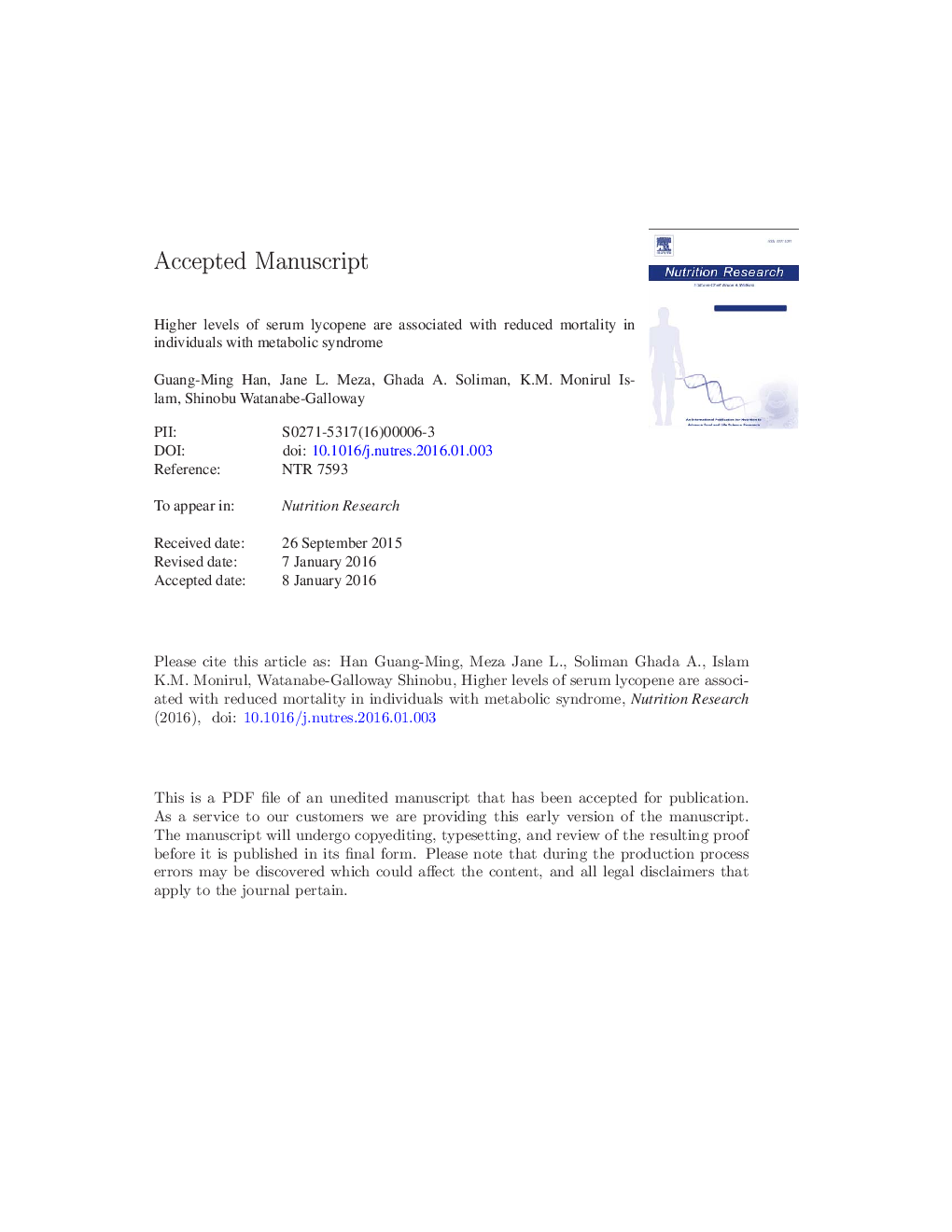| Article ID | Journal | Published Year | Pages | File Type |
|---|---|---|---|---|
| 5904319 | Nutrition Research | 2016 | 22 Pages |
Abstract
Metabolic syndrome increases the risk of mortality. Increased oxidative stress and inflammation may play an important role in the high mortality of individuals with metabolic syndrome. Previous studies have suggested that lycopene intake might be related to the reduced oxidative stress and decreased inflammation. Using data from the National Health and Nutrition Examination Survey, we examined the hypothesis that lycopene is associated with mortality among individuals with metabolic syndrome. A total of 2499 participants 20 years and older with metabolic syndrome were divided into 3 groups based on their serum concentration of lycopene using the tertile rank method. The National Health and Nutrition Examination Survey from years 2001 to 2006 was linked to the mortality file for mortality follow-up data through December 31, 2011, to determine the mortality rate and hazard ratios (HR) for the 3 serum lycopene concentration groups. The mean survival time was significantly higher in the group with the highest serum lycopene concentration (120.6 months; 95% confidence interval [CI], 118.8-122.3) and the medium group (116.3 months; 95% CI, 115.2-117.4), compared with the group with lowest serum lycopene concentration (107.4 months; 95% CI, 106.5-108.3). After adjusting for possible confounding factors, participants in the highest (HR, 0.61; P = .0113) and in the second highest (HR, 0.67; P = .0497) serum lycopene concentration groups showed significantly lower HRs of mortality when compared with participants in the lower serum lycopene concentration. The data suggest that higher serum lycopene concentration has a significant association with the reduced risk of mortality among individuals with metabolic syndrome.
Keywords
Related Topics
Life Sciences
Biochemistry, Genetics and Molecular Biology
Endocrinology
Authors
Guang-Ming Han, Jane L. Meza, Ghada A. Soliman, K.M. Monirul Islam, Shinobu Watanabe-Galloway,
